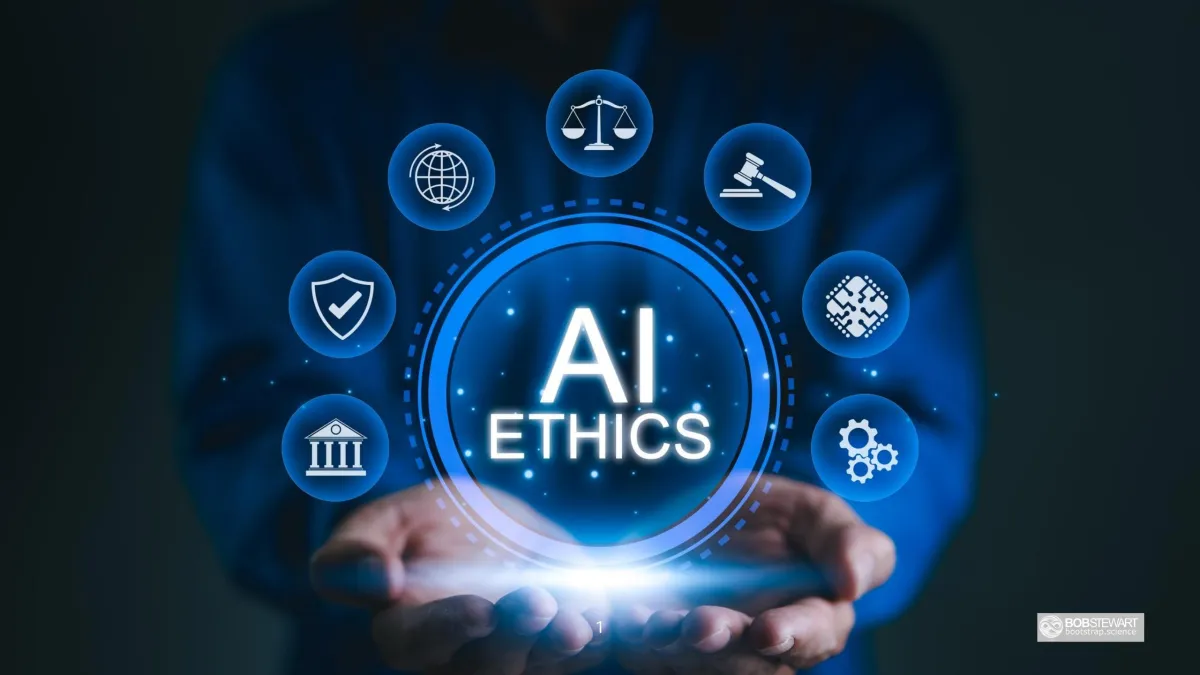Retailers and consumer service providers use AI to personalize experiences, manage inventory, set prices dynamically, and streamline operations. These AI systems directly touch customers’ lives and choices. In this sector, customer trust and regulatory compliance (privacy, consumer protection) are critical. AI governance ensures that the algorithms enhancing customer experience do so fairly, transparently, and safely, preserving the brand’s reputation and abiding by all consumer rights
Building Consumer Trust with Responsible AI
AI-SDLC Institute helps retail and consumer-facing businesses implement AI governance that reinforces existing customer protection standards, creating a synergistic layer of oversight rather than a new silo.
Our structured approach ensures that as you deploy AI for things like product recommendations, chatbots, demand forecasting, or dynamic pricing, you do so in a way that is aligned with laws and ethics at every step. We embed checks for fairness (avoiding biased offerings), privacy (complying with GDPR, CCPA etc.), and transparency (clear communication to customers) into your AI development and deployment processes. By doing this, we help your AI initiatives complement and elevate your brand’s customer service principles and compliance programs (like your privacy policy, ADA accessibility, FTC truth-in-advertising rules), not conflict with them. The result is AI that delights customers and drives growth without crossing lines that trigger customer backlash or regulator action.
Contact us to ensure your AI-driven customer experiences are innovative and personalized, yet always fair, transparent, and trustworthy from the moment they’re conceived.
The Trinity Framework: Three Pillars of Differentiation
We distill AI mastery into three core pillars, ensuring a structured, repeatable path to success:

Leadership → Mission | Purpose | Focus
Customer-Centric Design & Fairness:
We prioritize the customer’s perspective in AI development. This pillar means instituting practices like inclusive design and bias testing for algorithms that affect customers. For example, if you have an AI that segments customers for targeted promotions, our framework ensures it’s checked so that it doesn’t inadvertently discriminate (e.g., offering better deals to one demographic over another unfairly). We guide teams to use techniques such as A/B testing not just for conversion, but also to monitor for any disparate impacts. We also stress user experience transparency: whenever AI is making a decision that customers see (like a recommendation or a price), design it to be explainable at least in simple terms. These practices tie into your existing commitment to treat customers fairly and equitably across all channels.
Mission – Define the "why" of AI systems, aligning with human and business needs.
Purpose – Ensure AI initiatives are guided by ethical principles and long-term value.
Focus – Drive AI projects with clarity, structure, and accountability.

Certification → Prepare | Train | Execute
Privacy & Compliance by Design:
Retail/consumer data is often personal data. We align AI development with privacy frameworks by default. This involves embedding steps like data minimization (only using customer data that’s necessary and permitted), robust anonymization/pseudonymization for model training, and checks against using sensitive attributes inappropriately (e.g., no using protected health info in a recommendation engine outside of consent). Our governance also maps to regulations: we incorporate compliance with things like GDPR’s automated decision rights (like informing customers and providing opt-outs if AI is making significant decisions) and FTC guidelines on AI and consumer protection (FTC Announces Crackdown on Deceptive AI Claims and Schemes | Federal Trade Commission). By building these in, you’re not scrambling to retrofit compliance—your AI products are born compliant. Additionally, this pillar covers ensuring marketing AI follows truth-in-advertising rules (AI-generated content or interactions should not deceive customers).
Prepare – Learn foundational AI-SDLC methodologies.
Train – Gain hands-on experience through structured modules and case studies.
Execute – Validate skills through real-world AI project integration.

Execution → Plan | Build | Scale
Accountability & Brand Integrity:
We help establish oversight for AI’s impact on your brand and customer relationships. This pillar means creating processes to handle AI errors or controversies swiftly and effectively. For instance, if an AI chatbot says something inappropriate to a customer, there should be an escalation path to review and correct the model or content promptly, and to communicate with affected users if needed. We encourage a practice of maintaining “algorithmic inventories” where you list major algorithms in use, their purpose, and any known risks, which is overseen by a committee (including marketing, legal, and tech reps). That committee periodically reviews if outcomes align with company values and customer expectations. Essentially, just as you’d recall a faulty product, you need the ability to adjust or “recall” a flawed algorithm. With proper governance, even as you deploy hundreds of personalized models, none are left unchecked. This helps protect brand integrity—every automated decision still reflects your promised standards of service.
Plan – Develop structured AI-SDLC roadmaps.
Build – Implement AI solutions with tested frameworks.
Scale – Govern and optimize for long-term operational success.
Ready to get started?
Why AI-SDLC Institute?
In the retail and consumer world, experience is everything. One bad AI-driven experience can cause a customer to lose trust and flee to a competitor, or even spark a social media storm. Conversely, great AI use (like spot-on recommendations or efficient service) can deepen loyalty. The margin for error is thin. Moreover, retail has become a data-centric industry; consumers are increasingly aware that their data fuels AI. They demand that businesses use it responsibly.
Regulators, too, are sharpening their focus. The U.S. Federal Trade Commission (FTC) has explicitly said it will not tolerate AI that deceives or discriminates against consumers (FTC Announces Crackdown on Deceptive AI Claims and Schemes | Federal Trade Commission). In fact, the FTC has already taken action against companies for misleading AI marketing and even set rules like banning fake AI-generated reviews (U.S. FTC's New Rule on Fake and AI-Generated Reviews and ...). In Europe, the GDPR gives individuals rights to know and object if algorithms significantly affect them. The upcoming EU AI Act will label many consumer-facing AI systems (like credit scoring, which affects retail finance, or certain recommender systems) as high-risk, requiring rigorous oversight.
Market trends show explosive growth in AI investment in retail—projected to grow nearly tenfold from $9.36 billion in 2024 to over $85 billion by 2032 (Artificial Intelligence (AI) in Retail Market Size & Share 2032). This indicates retailers are rapidly adopting AI to gain an edge. But each new AI system (personalized pricing, automated customer support, etc.) is a potential point of failure if not governed. There have been public cases: for example, dynamic pricing algorithms that unintentionally led to higher prices for certain neighborhoods, or AI recruitment tools (used by retail chains) that were biased. Such incidents not only invite regulatory penalties but damage brand reputation among key demographics.
Who Is This For?
The AI-SDLC Institute is designed by and for:
Retailers (Brick-and-Mortar & E-commerce):
This includes major retail chains, online marketplaces, grocery and apparel companies, etc. Key participants are Chief Digital Officers, heads of e-commerce, CRM directors, and the data science teams working on recommendation engines, pricing algorithms, inventory forecasting, and customer segmentation.Consumer Service Companies:
Such as travel and hospitality firms, online media and entertainment services, consumer banking services (for the retail banking side), and any B2C service provider using AI to interact with customers (chatbots, personalization, etc.). They have similar needs in governing AI interactions and decisions.Marketing & Customer Experience Teams:
Because AI is heavily used in targeted marketing and personalization, we also serve marketing officers and CX leaders who might not be tech experts but are accountable for how AI affects customers. We help bridge their world (brand values, customer trust) with the technical world.Retail IT and Compliance Managers
Those who manage data privacy compliance (like a Chief Privacy Officer or a compliance manager focusing on consumer rights) and IT managers implementing AI systems. We bring them into the governance loop so that AI efforts are compliant and secure by design.
Consumers today are also vocal about AI. They might not tolerate, say, an AI that makes inappropriate product suggestions that seem invasive or out-of-touch with their values. Especially sensitive are areas like pricing fairness (customers will react strongly if they feel an algorithm is gouging or discriminating) and content moderation (retailers hosting user reviews or Q&A sections need AI moderation to filter hate or misinformation). Without proper governance, AI might fail to catch something, leading to public outcry.
On the flip side, when retailers implement AI responsibly, it can be a selling point. “Shop with confidence – our recommendations respect your privacy and preferences” can be a subtle but powerful message. Companies that get ahead of regulations by self-regulating their AI will avoid disruptions (like having to pull features because of compliance issues) and potentially earn certifications or seals of ethical AI use, which some consumer advocacy groups are discussing.
Ultimately, governing AI in retail/consumer services matters because it directly ties to customer trust, legal compliance, and smooth business operations. An AI that accidentally violates fair lending laws in offering store credit can land a company in legal hot water. An AI that mishandles personal data could trigger a class-action lawsuit or fines. And any AI that offends or mistreats customers – even unintentionally – can quickly become a PR crisis in this age of viral feedback. By adopting AI-SDLC Institute’s governance approach, retail and consumer service companies show that they are as diligent with AI as they are with store safety, product quality, or customer service training. It’s about ensuring all the “intelligent” systems remain under humane, principled control.
Join the Movement. Lead the Future.
We extend an invitation to retail and consumer service innovators who are passionate about marrying personalization with principles. At AI-SDLC Institute, you’ll find a community of like-minded professionals—from data scientists to chief marketing officers—grappling with the challenge of delighting customers without crossing ethical or legal lines. Join us to share stories and solutions: How do others ensure their dynamic pricing is fair? What governance do they have around AI-generated content on their platform? How are they preparing for laws like the AI Act or state AI laws? By engaging in our workshops, roundtables, and forums, you’ll learn what’s working in the field and even get ahead by anticipating issues others encountered.
Moreover, your involvement helps shape industry norms. Retail is often under public microscope; collectively, we can define what “good behavior” for AI in retail looks like and perhaps develop voluntary codes of conduct that stave off heavier regulation. As part of our Institute, you could contribute to drafting best-practice guidelines for, say, ethical personalized marketing or algorithmic transparency in pricing, which members can adopt and showcase.
We also encourage you to involve your legal, PR, and customer relations colleagues in our conversations—AI governance is multi-disciplinary. By doing so, you break silos in your own organization. Many of our members report that by participating with us, they forged new internal partnerships (e.g., their compliance and AI teams started collaborating closely). Come collaborate with us, and ensure that your journey in AI-enhanced customer experience is guided by wisdom from peers and experts, not just trial and error. In an age where one misstep can trend on Twitter, let’s work together to make responsible AI a hallmark of great customer-centric business.

Responsible AI in Retail Playbook:
Upon joining, members get access to a comprehensive playbook geared for retail/consumer contexts (compiled from our frameworks and sector research). It outlines step-by-step how to implement governance for common AI use cases: recommendation systems, customer service chatbots, personalized marketing, and so on. It includes real-world example policies (like an AI ethics policy for a fictional retailer), and references relevant regulations in plain language for each use case. This playbook distills currently available Institute guidance into a sector-specific manual that your teams can immediately put to use.
Privacy & Consumer Law Compliance Clinics:
As part of our advisory services, we offer “clinic” sessions where our experts (and guest legal/industry experts) review your consumer AI application for compliance and ethical issues. Think of it as a proactive check-up for an upcoming AI feature – we’ll look at how you’re using data, if you’re explaining things to users properly, if there’s any risk of algorithmic bias or fraud, etc., and provide recommendations. This leverages our knowledge base and is strictly aligned with our consultancy scope (we are not a law firm, but we translate compliance into practical guidance).
Training for Cross-Functional Teams:
We provide training sessions not just for technical teams, but also for marketing, support, and compliance teams in retail. For example, a workshop for marketing and data science together on “Bias and Fairness in AI-driven promotions” – teaching how to spot unintended bias and what guardrails to implement. Or training customer service managers on how to handle escalations when AI assistants encounter novel situations (so that the human can seamlessly take over and the incident feeds back into improving the AI). This ensures everyone who interacts with or oversees an AI in your organization understands their role in governance.
Retail and Consumer Services Roundtable:
Our community facilitates an ongoing roundtable series specifically for this sector. Topics might include “AI and Loyalty Programs: Balancing personalization with fairness” or “Case Study: Responding to an AI-caused PR crisis”. By participating, you can anonymously discuss challenges and get input from peers who’ve perhaps dealt with similar issues (maybe a competitor in another market, or a different industry facing analogous problems). It’s a supportive environment to troubleshoot and learn continuously.
6+
EVENTS A YEAR
40+
SOPs
30+
YEARS OF EXPERIENCE
2,640+
INFLUENCERS
The Challenges AI Leaders Face
OPPORTUNITIES
Speed to Market: AI-SDLC accelerates deployment without sacrificing compliance.
Cost & Risk Management: Our structured frameworks reduce AI implementation costs and legal exposure.
Safety & Reliability: Proactively mitigate ethical, legal, and technical risks through AI-IRB oversight
Deliver personalization with principles.
As you harness AI to serve your customers in smarter ways, ensure that responsibility and compliance are part of that journey. Contact AI-SDLC Institute today to fortify your retail or consumer service AI projects with a governance framework that protects your customers and your brand. In doing so, you’re not just following the trend of AI in retail—you’re leading it, by demonstrating that customer trust and innovation can grow hand in hand. Engage with us now, and let your commitment to ethical AI set you apart as a true customer-centric leader.
What The AI Leaders Are Saying

OpenAI
The AI-SDLC Institute's commitment to ethical AI governance and its comprehensive approach to training and certification resonate deeply with the current needs of the AI community. Its focus on leadership and structured execution frameworks offers valuable guidance for organizations aiming to navigate the complexities of AI development responsibly."

Meta
The AI-SDLC Institute is a professional resource for AI professionals focusing on the Systems Development Life Cycle (SDLC) of AI and Machine Learning (ML) systems. I think the AI-SDLC Institute has a solid foundation and a clear direction, a valuable resource for AI professionals and researchers."

